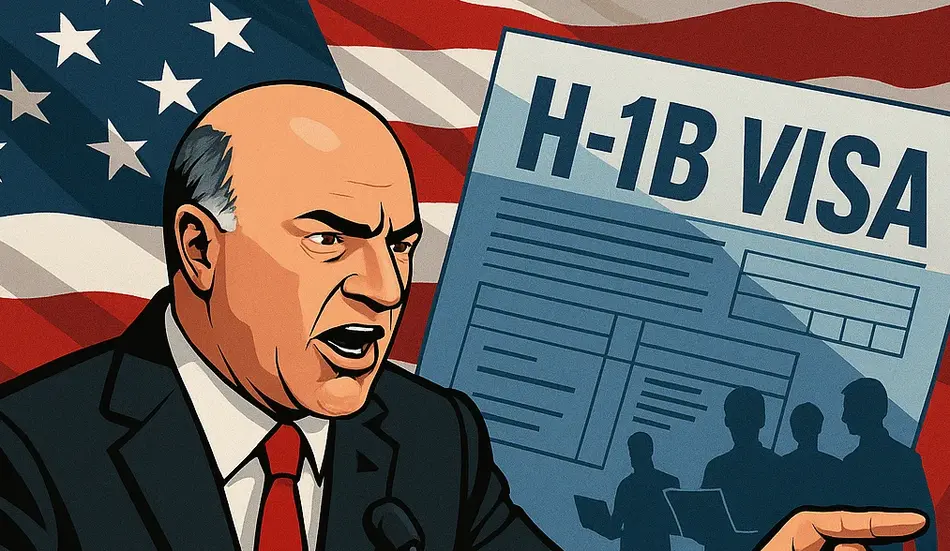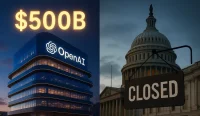H-1B Visa Policy: A Deep Dive into America’s Competitive Edge
The H-1B Visa Policy has long been a cornerstone of America’s approach to attracting global talent. In recent years, however, new changes and heated debates have brought this policy into the spotlight, raising questions about its impact on innovation, competition, and the future of the American workforce.In this article, we’ll explore the latest developments, expert opinions, and the real-world effects of the H-1B Visa Policy. Whether you’re an employer, a skilled worker, or simply interested in the future of American industry, this comprehensive guide will provide the clarity you need.
What Is the H-1B Visa Policy?
The H-1B Visa Policy is a U.S. immigration program that allows companies to employ foreign workers in specialty occupations. These roles typically require specialized knowledge and a bachelor’s degree or higher. The policy was designed to help American businesses fill critical skill gaps, especially in fields like technology, engineering, and healthcare.
The New $100,000 H-1B Visa Fee: A Game Changer?
Background of the Policy Change
Recently, a proposal to introduce a $100,000 fee for each H-1B visa application has sparked intense debate. Supporters argue that the fee will deter companies from abusing the system, while critics warn it could stifle innovation and make America less competitive.
Expert Opinions on the H-1B Visa Policy
Kevin O’Leary, a well-known entrepreneur and investor, has been vocal about his concerns. He points out that while some large corporations may have abused the policy to cut labor costs, many startups and innovative companies rely on H-1B visas to attract top talent—especially in fields like artificial intelligence, where skilled professionals are in short supply.> “To make a blanket statement that every H-1B visa is being abused is just wrong. We want to attract the best and the brightest into this country, regardless of where they’re from. Making it impossible for a startup to afford them is a mistake. That reduces innovation and competition long-term.”> — Kevin O’Leary
Potential Impact on Startups and Innovation
- Startups may struggle to afford the new fee, limiting their ability to compete with tech giants.
- The U.S. could lose out on top global talent, especially in cutting-edge fields like AI.
- Innovation and job creation may slow down if companies can’t access the skills they need.
H-1B Visa Policy and American Competitiveness
Balancing Abuse Prevention and Talent Attraction
The challenge for policymakers is to prevent abuse of the H-1B system without discouraging the world’s best minds from coming to America. While it’s important to ensure that companies don’t use the policy to undercut wages, it’s equally vital to maintain the country’s reputation as a hub for innovation.
The Role of Big Tech and Startups
Large companies like Apple and Amazon may be able to absorb the new fee, but smaller firms and startups could be disproportionately affected. This could lead to a less dynamic tech ecosystem and fewer opportunities for American workers.
Beyond the H-1B: Broader Immigration and Tech Policy
Data Security and International Relations
The H-1B Visa Policy is just one piece of a larger puzzle. Recent discussions about data security, such as the separation of TikTok from its Chinese parent company, highlight the complex interplay between immigration, technology, and national security.
The Future of the H-1B Visa Policy
As the debate continues, it’s clear that any changes to the H-1B Visa Policy will have far-reaching consequences. Policymakers must weigh the need for security and fairness against the imperative to keep America at the forefront of global innovation.
Immigration, Innovation, and the Future of Tech
The evolving H-1B visa debate underscores how immigration, data security, and technology policy shape the global innovation landscape. Employers can prepare for these shifts by hiring skilled talent eager to contribute to secure, future-ready industries. Post your job on WhatJobs today and connect with professionals ready to build at the intersection of tech and policy.
Post a Job Free for 30 Days →Real-World Perspectives: Voices from the Field
Employers’ Concerns
Many employers worry that the new fee will make it harder to fill critical roles, especially in STEM fields. They argue that the H-1B Visa Policy should be reformed to target abuse without penalizing companies that genuinely need skilled workers.
Skilled Workers’ Hopes and Fears
For many skilled professionals around the world, the H-1B visa represents a pathway to the American dream. Changes to the policy could alter their career prospects and life plans.
Key Takeaways on the H-1B Visa Policy
- The H-1B Visa Policy is essential for attracting global talent and maintaining America’s competitive edge.
- New fees and restrictions could have unintended consequences for startups, innovation, and job creation.
- Policymakers must strike a balance between preventing abuse and fostering a dynamic, inclusive economy.
Frequently Asked Questions
What is the H-1B Visa Policy and why is it important?
The H-1B Visa Policy allows U.S. companies to hire foreign professionals in specialty occupations. It’s important because it helps fill skill gaps and drives innovation in key industries.
How will the new $100,000 fee affect the H-1B Visa Policy?
The new fee could make it harder for startups and smaller companies to hire top talent, potentially reducing innovation and America’s global competitiveness.
Does the H-1B Visa Policy encourage abuse by big companies?
While some large companies have been accused of abusing the policy, most use it to fill genuine skill shortages. The challenge is to prevent abuse without harming innovation.
What changes are being proposed to the H-1B Visa Policy?
Proposals include higher fees and stricter requirements. These changes aim to prevent abuse but may also make it harder for companies to attract the best talent.
Live Example: A User’s Perspective
Imagine you’re a recent graduate in artificial intelligence from India, dreaming of working for a U.S. startup. You receive a job offer from a promising company in Silicon Valley. However, the new H-1B Visa Policy means your employer must pay a $100,000 fee to sponsor your visa. For a small startup, this is a huge financial burden. They hesitate, worried about the cost. You’re left in limbo, unsure if your American dream will come true. This scenario is becoming more common, highlighting the real-world impact of policy changes on both employers and skilled workers.




